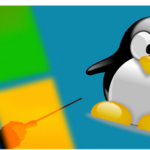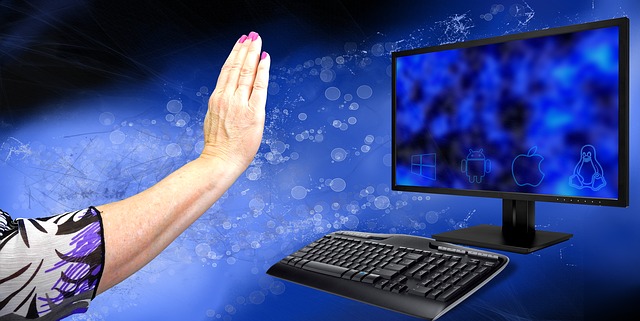In an exciting development that has caught the attention of both open-source enthusiasts and gaming aficionados alike, ReactOS – often heralded as the "open-source Windows" – has been demonstrated running on Valve's innovative portable gaming device, the Steam Deck. This breakthrough represents not only a significant technical achievement but also opens up a realm of possibilities for the future of gaming and software compatibility. Through this article, we will delve into the various facets of this development, including an exploration of what ReactOS brings to the table, how its compatibility with the Steam Deck was achieved, and the broader implications of this pioneering effort. Join us as we embark on a journey through the uncharted territory of merging the worlds of open-source software and cutting-edge gaming hardware, heralding a new era of versatility and access in the tech realm.
- 1. Exploring ReactOS: An Open-Source Alternative on the Steam Deck
- 2. Unveiling a New Frontier: ReactOS Compatibility with Valve's Steam Deck
- 3. Bridging Worlds: The Remarkable Achievement of Running ReactOS on Steam Deck
1. Exploring ReactOS: An Open-Source Alternative on the Steam Deck
In a significant development for enthusiasts of both gaming and open-source software, the Steam Deck, Valve's powerful handheld gaming device, has recently been demonstrated running ReactOS. This amalgamation is not just a technical curiosity; it represents a bold step towards greater hardware compatibility and software freedom in the gaming sphere. ReactOS is an open-source operating system with the ambitious goal of being binary-compatible with Windows. This compatibility aims at allowing applications and drivers written for Windows to run natively on ReactOS without modifications.
The exploration of ReactOS on the Steam Deck is intriguing for several reasons. Firstly, it opens the door to a broader library of games and applications that are traditionally bound to the Windows operating system. While the Steam Deck's native Linux-based SteamOS already offers impressive support for Windows games through the compatibility layer Proton, ReactOS potentially eliminates the need for such layers for certain applications and games, offering a more direct compatibility route.
Moreover, ReactOS on the Steam Deck signifies a philosophical alignment with the principles of software freedom and user control. ReactOS is purely open-source, giving users and developers an unparalleled level of access to modify, distribute, and understand the operating system’s inner workings. This approach aligns with the broader ethos within parts of the gaming community that advocates for open standards and against proprietary restrictions.
However, running an alternative operating system on specialized gaming hardware like the Steam Deck is not without its challenges. Ensuring that ReactOS fully utilizes the Deck's custom APU for optimal gaming performance, managing power consumption for battery life, and achieving seamless integration with the Deck's unique controls and display are non-trivial engineering feats. Furthermore, the legal and technical complexities of achieving full binary compatibility with Windows without infringing on Microsoft's intellectual property are considerable.
Despite these challenges, the successful demonstration of ReactOS on the Steam Deck is a proof of concept that could encourage more developers to explore and contribute to the compatibility and performance of open-source operating systems on a variety of hardware platforms. For the end user, this development promises not only a wider range of software options but also a future where the philosophy of open source and the practicalities of gaming hardware can coexist more harmoniously.
As ReactOS and similar projects continue to evolve, the implications for gaming, software independence, and the broader ecosystem of devices like the Steam Deck are substantial. This bold intersection of open-source software and commercial gaming hardware may well signify a step towards a more open and accessible world of gaming, software development, and technological innovation.
2. Unveiling a New Frontier: ReactOS Compatibility with Valve's Steam Deck
In a groundbreaking development that pushes the boundaries of software versatility and compatibility, the ReactOS project, often celebrated as the "Open-Source Windows," has been successfully demonstrated running on Valve's Steam Deck. This pioneering endeavor showcases the symbiotic potential between ReactOS and cutting-edge hardware, embodying a significant stride toward operational diversity and adaptability in the digital realm.
ReactOS, an operating system rooted in the rich heritage of the Windows NT architecture, has long aspired to provide a completely open-source environment that is binary-compatible with Windows. This ambition facilitates the running of Windows applications and drivers in a free and open-source landscape, presenting a compelling alternative for users who seek the familiarity of Windows software without its proprietary constraints.
Valve's Steam Deck, on the other hand, represents the frontier of portable gaming technology. With its custom AMD APU powering a PC-based architecture, the Steam Deck brings the immense library of Steam games and PC titles to a handheld device, offering unprecedented gaming freedom and mobility.
The integration of ReactOS into the Steam Deck heralds a new era of compatibility and user freedom. By running ReactOS on the Steam Deck, users are not only able to tap into the rich library of PC gaming but potentially also access a wide array of classic and current Windows applications and utilities, effectively transforming the Steam Deck into a versatile PC that fits in the palms of your hands.
This compatibility experiment is not just a technical feat; it's a statement on the evolving nature of software and hardware interoperability. It reinforces the viability of open-source projects in bridging gaps between different computing platforms and exemplifies how community-driven initiatives like ReactOS can extend the functionality and usability of cutting-edge hardware like the Steam Deck.
Moreover, this successful demonstration opens up discussions on the future possibilities of open-source operating systems in mainstream computing devices. As users increasingly seek flexibility, customization, and freedom in their software choices, projects like ReactOS pave the way for a future where the boundaries between different operating systems and hardware become increasingly blurred, fostering an environment of innovation and user empowerment.
In conclusion, the successful execution of ReactOS on the Valve Steam Deck not only unveils a new frontier of compatibility but also symbolizes a significant leap forward in the pursuit of open-source solutions that cater to the diverse needs of the modern user. As this endeavor progresses, it will undoubtedly inspire further exploration and development within the realms of software compatibility and hardware versatility, shaping the future landscape of computing technology.
3. Bridging Worlds: The Remarkable Achievement of Running ReactOS on Steam Deck
The achievement of running ReactOS, an open-source operating system that seeks to emulate Windows' functionality, on Valve's Steam Deck is not just a technical milestone; it embodies a significant bridging of digital worlds. This convergence of a platform created to replicate Windows environment with Valve's cutting-edge gaming handheld underscores a remarkable leap in open-source projects and hardware adaptability.
ReactOS's development ethos centers around creating an OS capable of running Windows applications and drivers directly, without the need for a Windows license. This undertaking is ambitious, seeking to offer an alternative to Microsoft's proprietary OS for users who prefer or require open-source solutions. The fact that developers have successfully managed it to run on Steam Deck highlights the OS's potential flexibility and adaptability.
The Steam Deck, on the other hand, is Valve's answer to portable gaming, a meticulously designed device capable of running an extensive library of PC games. Its hardware is tailored towards gaming performance, with a Linux-based operating system, SteamOS, that satisfies gamers' demands out of the box. However, by enabling ReactOS to function on the Steam Deck, developers are significantly expanding the device's capabilities beyond its primary gaming focus, transforming it into a more versatile computing device.
This achievement serves multiple exciting prospects for both gamers and non-gamers. For the gaming community, it opens up possibilities for running Windows-based games and applications that were previously incompatible with the Steam Deck's native OS. This could potentially amplify the device's appeal, making it a more universally appealing piece of hardware not just limited to gaming but also to general-purpose computing.
For the broader open-source community and advocates of software freedom, running ReactOS on the Steam Deck exemplifies the powerful potential of open-source projects to challenge the status quo and offer viable alternatives to proprietary solutions. It demonstrates a successful collaboration between open-source software and modern hardware, moving closer to a future where users aren't bound by software limitations dictated by their hardware choices.
In essence, the successful endeavor of getting ReactOS to run on Steam Deck melds the realms of gaming, open-source software, and hardware versatility. It's a testament to the innovative spirit within the technology community, showcasing that with enough skill and determination, barriers between different software and hardware ecosystems can indeed be bridged. This not only enhances the utility and appeal of the Steam Deck but also pushes forward the boundaries of what's possible in the open-source world.























+ There are no comments
Add yours